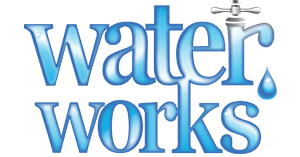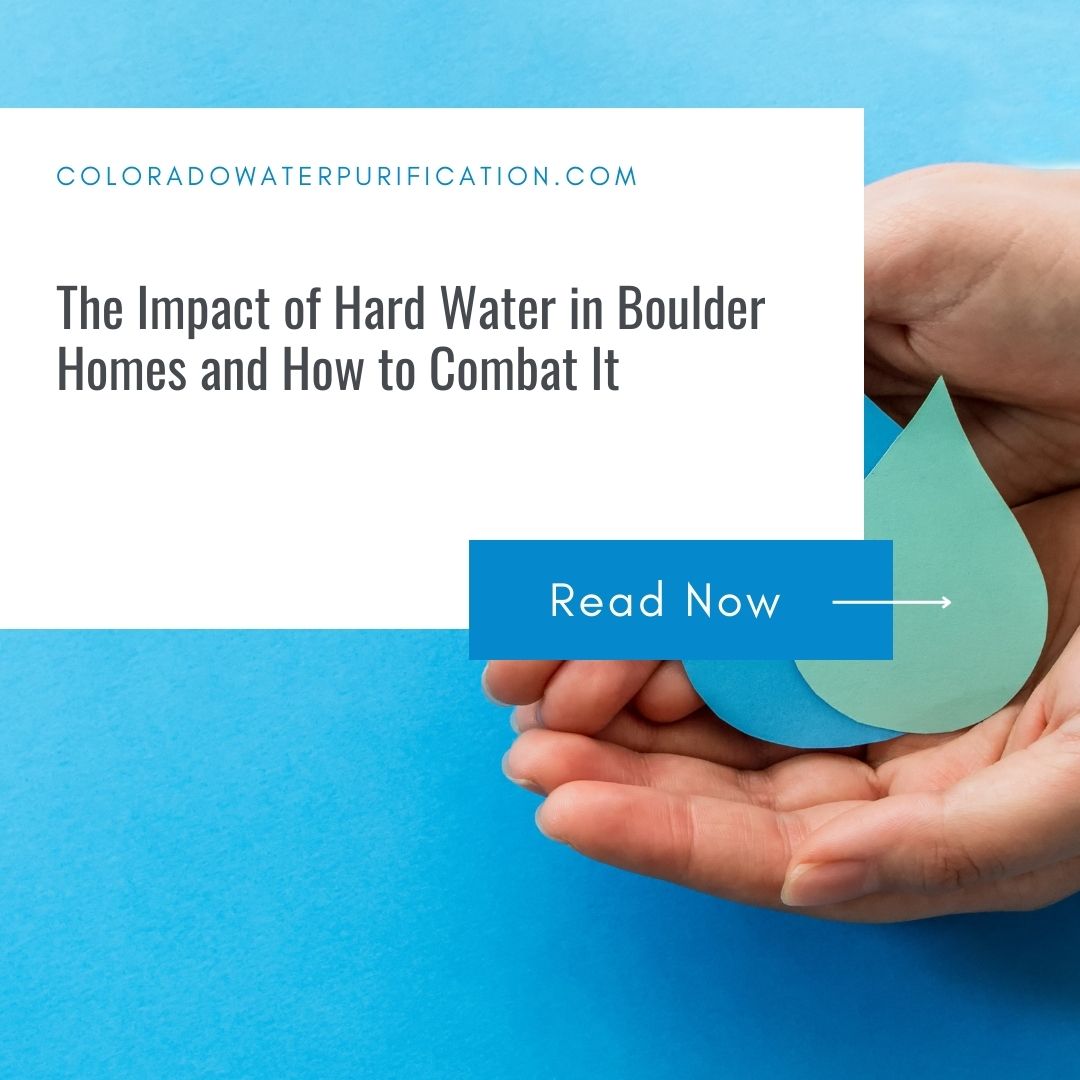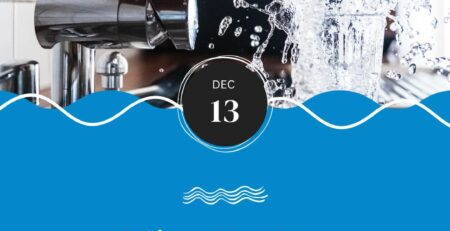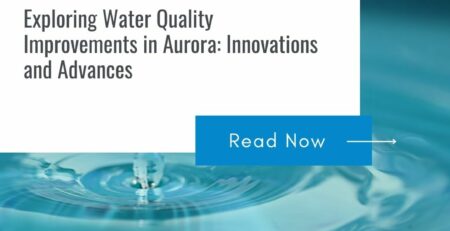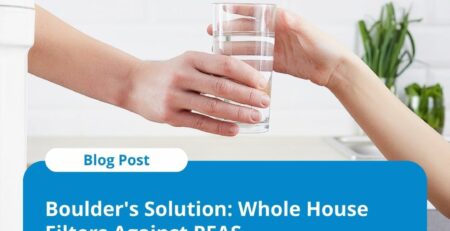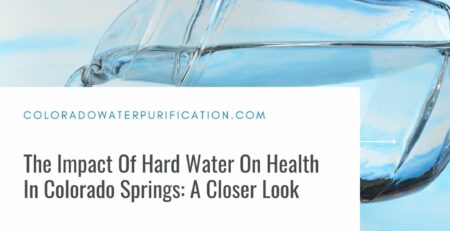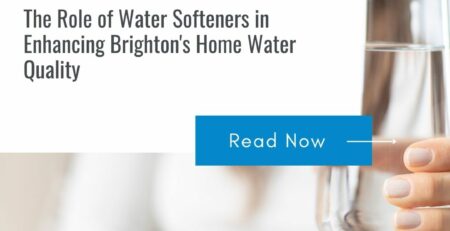The Impact of Hard Water in Boulder Homes and How to Combat It
Hard water is a common issue that many homeowners in Boulder, Colorado face daily. From leaving stubborn white spots on dishes to damaging appliances and pipes, the effects of hard water can be frustrating and costly. But what exactly is hard water? How does it impact your home and why is it important to address it? And most importantly, what are the best ways to combat its effects? In this blog post, we will dive deep into the world of hard water and explore all these questions and more. Whether you’re a long-time resident or new homeowner in Boulder, understanding the impact of hard water on your home is vital for maintaining its value and creating a healthy living environment. So buckle up as we take a closer look at this pesky problem and discover effective solutions to combat it once and for all!
Introduction to the issue of hard water in Boulder and its effects on homes
Boulder, Colorado is well-known for its beautiful scenery and outdoor activities, but one problem that often goes overlooked is the issue of hard water. Hard water is caused by an abundance of minerals, typically calcium and magnesium, which can lead to a variety of problems for home owners. These minerals can build up in pipes and appliances, reducing the effectiveness and lifespan of these key components in our homes. Additionally, hard water can leave unsightly stains on sinks and showers, leading to frustration and even embarrassment in some cases. Despite these issues, many people are unaware of the prevalence of hard water in Boulder and how to deal with it. It is important to educate ourselves on this issue and take steps to mitigate its effects on our homes and daily lives.
The hidden costs of hard water – higher utility bills, damage to appliances and fixtures
The effects of hard water on your home can certainly be hidden, but they are not insignificant. For starters, hard water is notorious for causing damage to appliances and fixtures over time, leading to costly repairs or replacements. In addition, it can also drive up your utility bills since your appliances have to work harder to overcome the mineral buildup in your plumbing. Not to mention the potential negative impact on your skin and hair. The hidden costs of hard water can quickly add up, which is why investing in a water softener might be the smartest move you can make for your home in the long run.
How to test for hard water in your home and determine the severity of the problem
Hard water can be a major nuisance in your home. From damaging your plumbing fixtures to causing soap scum buildup, it can lead to a whole host of problems. But how can you tell if you have hard water and how severe the issue is? The most common method is to perform a simple water hardness test. You can purchase a test kit from your local hardware store or have a professional come out and test your water for you. Once you have determined the level of hardness in your water, you can take the appropriate steps to treat the problem and enjoy the benefits of soft, clean water in your home. Don’t let hard water take a toll on your home – test for it today!
DIY solutions for combating hard water, such as using vinegar or a water softener system
Dealing with hard water can be a real hassle. Whether it’s spots on your dishes or a buildup of mineral deposits in your shower, hard water can leave your home looking less than sparkling clean. Luckily, there are a few DIY solutions you can try to combat the effects of hard water. One popular option is using vinegar to dissolve mineral deposits. Simply mix equal parts water and vinegar, then use the solution to scrub away the buildup. For a more long-term solution, you could invest in a water softener system, which will remove hard minerals from your water. Whatever your preference, there’s sure to be a solution that fits your needs and your budget. Say goodbye to hard water headaches and hello to a cleaner, clearer home!
The benefits of investing in a professional water softener system for long-term savings and improved home value
When it comes to investing in home upgrades, a professional water softener system may not be the first thing that comes to mind. However, the benefits of making this investment are numerous and can ultimately result in long-term savings and an increased home value. A water softener system can greatly reduce the amount of minerals in your water supply, which not only improves the taste and quality of your drinking water, but also extends the lifespan of your household appliances and plumbing fixtures. Plus, with the added perk of reduced energy usage and a potentially higher selling price for your home, a water softener system is a wise investment for any homeowner looking to improve their property’s value and save money in the long run.
Other ways to improve your home’s value while addressing hard water, such as upgrading to energy-efficient appliances or installing a smart irrigation system
In today’s housing market, homeowners are constantly searching for ways to increase the value of their homes. If you’re dealing with hard water issues, there are a number of ways to tackle the problem while also boosting your home’s value. Upgrading to energy-efficient appliances can lead to significant savings on your utility bills, while also making your home more attractive to potential buyers. In addition, installing a smart irrigation system can help conserve water while also keeping your lawn looking lush and green. By addressing hard water issues and making additional upgrades to your home, you can increase its overall value and appeal.
Tips for maintaining your newly softened water and preventing future buildup of minerals
After investing in the installation of a water softener, it’s important to maintain it properly to ensure you enjoy the benefits for years to come. Over time, minerals can build up and create scaling in your pipes, appliances, and fixtures, leading to reduced efficiency and costly repairs. To prevent this, it’s recommended to periodically check and replenish the salt in your water softener to ensure it’s working effectively. Additionally, using a water treatment solution can further enhance your water quality and avoid the formation of mineral buildup. Regular cleaning of your water fixtures and appliances can also help to keep them functioning properly and looking their best. By following these tips, you can enjoy the many benefits of your softened water for many years to come.
Environmental impact of hard water and why it’s important to address it in your home
Hard water is a common problem in homes across the country. What many people don’t realize is that it can have a significant environmental impact. Hard water contains high levels of minerals like calcium and magnesium, which can be harmful to aquatic life if not properly treated. Additionally, hard water can cause mineral buildup in pipes and appliances, leading to inefficiency and ultimately more energy usage. Addressing hard water in your home not only has benefits for your personal health and comfort, but it also plays a role in preserving the health of our planet. So, take the steps necessary to soften your water and reduce your environmental impact.
Personal anecdotes from homeowners who have successfully dealt with hard water issues
As homeowners, we know that hard water can be a frustrating problem to deal with. From stubborn mineral stains to damaged appliances, it can be a headache to cope with the negative effects of hard water. However, there are success stories out there from other homeowners who have found solutions to this pesky issue. From installing a water softening system to using DIY remedies like vinegar and lemon juice, these homeowners have discovered effective ways to combat hard water problems. Hearing their personal anecdotes may inspire you to try new techniques and find a better solution for your hard water issues.
Conclusion highlighting the importance of addressing hard water in order to increase home value and improve quality of life.
In the grand scheme of home improvements, it’s easy to overlook the quality of water flowing through your pipes. But the truth is, hard water can have a significant impact on both your quality of life and the value of your home. Not only does it diminish the taste of your drinking water, but it can wreak havoc on your plumbing fixtures, laundry appliances, and dishes. By investing in a water softener, you’ll not only improve the cleanliness and functionality of your home, but also increase its resale value. So, don’t overlook the importance of addressing hard water. Your home—and your wallet—will thank you in the long run.
In conclusion, hard water can cause a lot of unseen damage and hidden costs for homeowners in Boulder. From skyrocketing utility bills to irreparable damage to appliances and fixtures, the effects of hard water are not to be taken lightly. But don’t worry – there are ways to combat this issue and improve the overall value of your home. From simple DIY solutions like using vinegar, to investing in a professional water softener system for long-term savings and improved home value, there are options for every budget. And while you’re at it, why not consider upgrading to energy-efficient appliances or installing a smart irrigation system? Not only will these improvements increase your home’s value, but they also help combat the negative environmental impact of hard water. Don’t just take my word for it though – hear from other homeowners who have successfully dealt with hard water issues and seen the positive results firsthand. Whether you’re selling your home or simply looking for ways to improve your quality of life, addressing hard water is an important step that should not be overlooked. So what are you waiting for? Take action today and say goodbye to pesky hard water problems!
